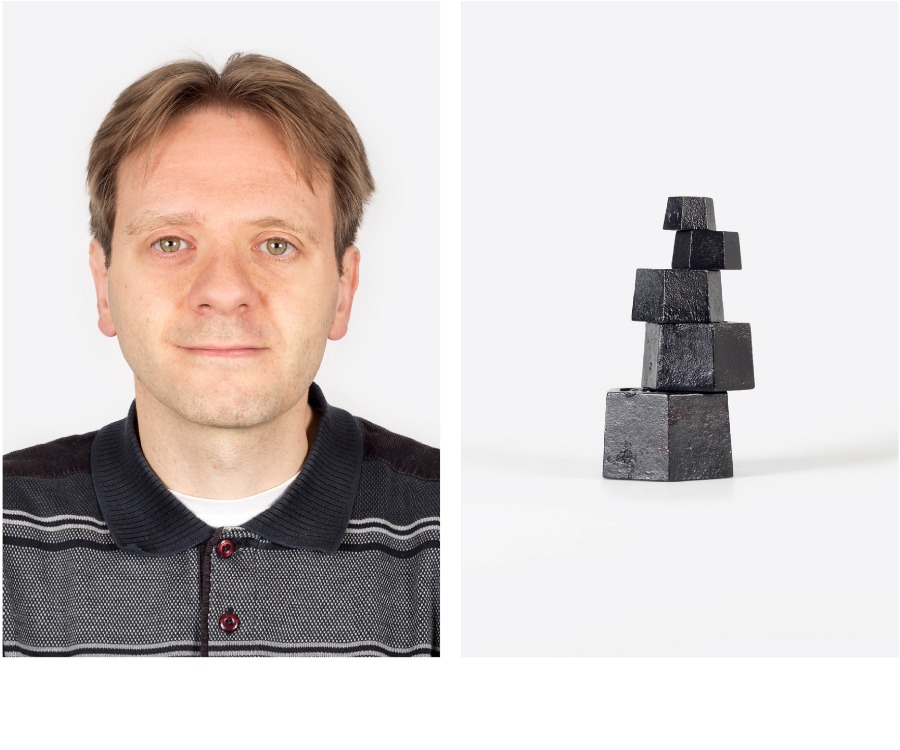Photo testimonial: the labour market excludes the chronically ill
Published 14 Jan 2019 • By Louise Bollecker

Alain's Testimonial
the labour market excludes the chronically ill
 I have been chronically ill for 20 years. Since then, I have had to adapt to many changes in my life, such as being able to complete my studies or giving up my place in the labour market. Just a few years after the diagnosis, I had to give up work. My state of health no longer allowed me to continuing working or being as productive as before. Chronically ill? Yes... but not with only 1 disease, nor 2...but 3 for which medicine does not offer a curative and proven treatment.
I have been chronically ill for 20 years. Since then, I have had to adapt to many changes in my life, such as being able to complete my studies or giving up my place in the labour market. Just a few years after the diagnosis, I had to give up work. My state of health no longer allowed me to continuing working or being as productive as before. Chronically ill? Yes... but not with only 1 disease, nor 2...but 3 for which medicine does not offer a curative and proven treatment.
Unpleasant physical sensations, the loss of feelings of well-being are part of my daily life. It took me years to realise and accept this; but yes, chronic pain is a burden to bear in my life. Unfortunately, it is not the only one... Physically, fatigue in the broad sense and concentration problems limit me greatly in my daily life. Morally, the expectations of society, the judgment of others, health care and social security policies also represent a burden, over which I have no control. No, it's not enough to think positively to make things better and no, just because I look a little better at a certain time of day doesn't mean I can consider working again.
In our society, you have to be efficient, active and in a good position to succeed in life. What do we do when we cannot comply with this requirement? As best I could, and on several occasions, I tried to return to a part-time professional activity adapted to my limits. Unfortunately, I was quickly confronted with the limitations of the system. Officially, any person who is unable to work can resume a part-time and adapted activity; but in reality, the constraints are such that many chronically ill people cannot access it. My doctor confirmed this to me a few months ago in consultation.
At the same time, our elected representatives are reforming social security by pushing long-term patients back to work, without taking into account the obstacles experienced by those most affected. I have already heard that medical consultants refer people to completely unsuitable jobs ("adapted" work companies in which the job consists of repeating the same actions such as sending mail, parcels...) despite much higher levels of training and skills. The problem should be reconsidered by also taking into account the reality of the labour market: employers hire efficient, dynamic, flexible and operational workers from day one. In my experience, the NIMBY syndrome (Not In My BackYard) also applies to the labour market: everyone would like to put long-term patients back to work on the pretext that they are taking advantage of the situation and defrauding... as long as they do not come to my company, especially if they cannot adapt like any other worker. There are of course exceptions but this has been my experience.
This testimonial is part of the graduation project of Gaëlle Regnier, a student of photography at the Agnès Varda School of Photography and Visual Techniques in Brussels. She chose chronic pain as the theme of this photo report to highlight the patients and their struggle.
Other testimonials
Claire: "Continuing to work with rheumatoid arthritis"
Delphine: "Years of diagnostic uncertainty facing Ehlers-Danlos Syndrome"
Ornella: "Photo testimonial: KISS syndrome - from mother to son"
Marie: "Irritable bowel syndrome prevents peole from living"
Virginia: "Maintain hope despite the side effects of treatments for rheumatoid arthritis"
Carenity
3 comments
You will also like

Working life and chronic illness: the experiences and solutions of Carenity members
6 Jun 2019 • 9 comments

 Facebook
Facebook Twitter
Twitter




